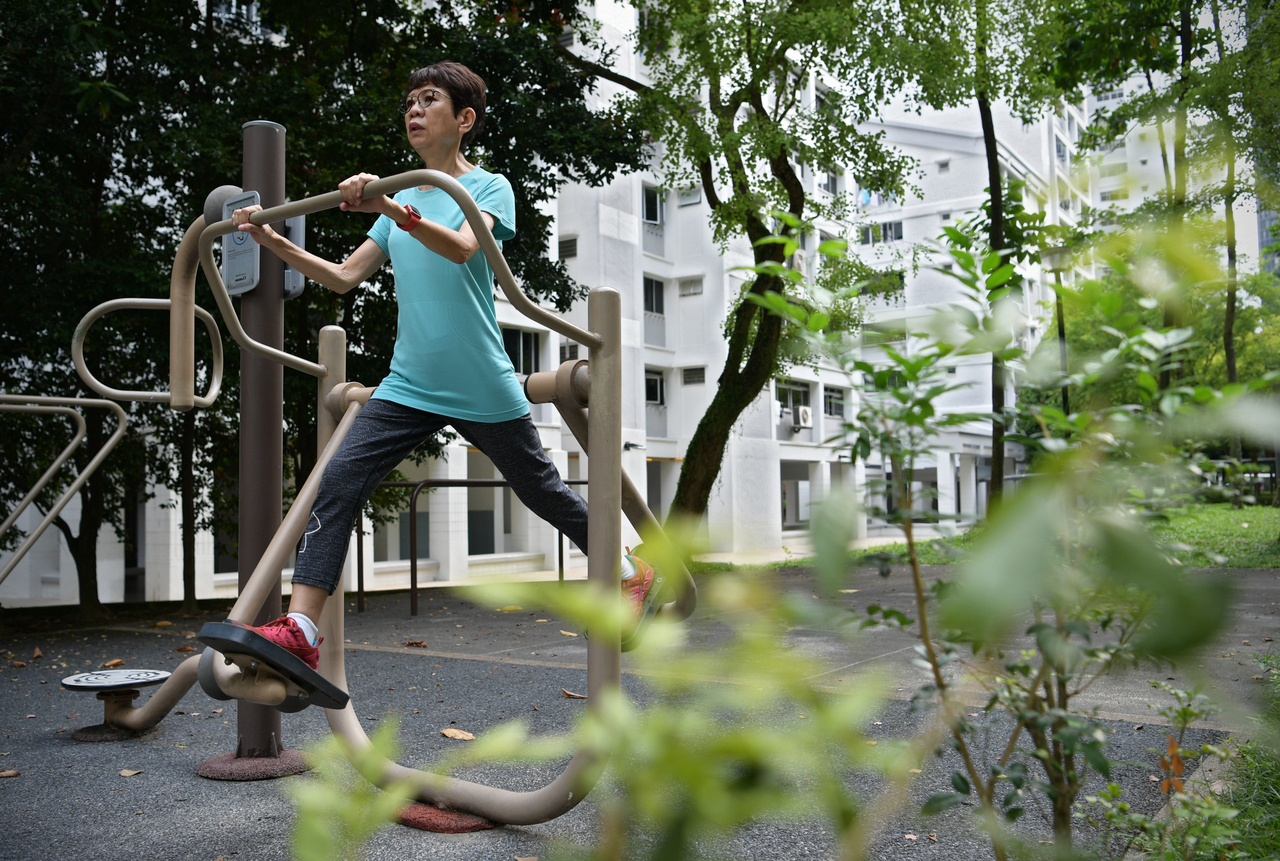Recovered stroke patient learns to manage anxiety with mindfulness programme
Sign up now: Get ST's newsletters delivered to your inbox

Ms Jessie Tham was anxious that the closure of fitness studios would disrupt her exercise routine and rehabilitation.
ST PHOTO: NG SOR LUAN
SINGAPORE - When the Government announced on May 4 that fitness studios would close to minimise the spread of Covid-19 in the community, Ms Jessie Tham, 61, experienced a wave of anxiety.
Exercising was not just a way for her to stay fit, but also essential for her to build up her strength and endurance after she had a stroke in December 2018. She worried about the disruption to her rehabilitation.
She was also concerned about the rise in community cases.
So when the Brahm Centre, a charity which promotes mindfulness programmes to reduce stress, launched a 30-minute lunchtime mindfulness programme on May 4, Ms Tham, who works in financial services, did not hesitate to sign up for it.
She is one of over 1,000 people who signed up for the programme.
The sessions are held via Zoom, with about 150 people tuning in every day. They will continue until June 30.
Since attending the sessions three times a week, Ms Tham has found it easier to cope with feelings of anxiety during phase two of the heightened alert, which ended on Sunday (June 13).
Her anxiety had stemmed from having her barre and Pilates classes moved online during the four-week period.
She said: "On Zoom, the trainer could only give me verbal guidance on how to adjust my posture. There wasn't much time for me to understand the instructions. My focus was not on my exercises but looking at the screen."
It did not help that she had been hospitalised for three weeks in May last year because of an inflamed aorta, the main artery of the heart.
"Whatever recovery I had achieved between 2019 and April 2020 had gone to waste. My physical condition was back to (what it was in) March 2019," said Ms Tham, who is single.
With the help of the Brahm Centre, she is learning to focus on the positive through practising gratitude.
She said: "Mindfulness teaches us to do one thing at a time at a pace with which we are comfortable. With this non-striving mindset, I don't need to rush my recovery process."
Mindfulness has also taught her how to manage her emotions and not dwell excessively on the possibility of contracting Covid-19.
For people going through a difficult period now, Ms Tham recommends the practice of mindfulness as well as community service.
Working with positive and like-minded people helps to improve one's mental health, she said.


